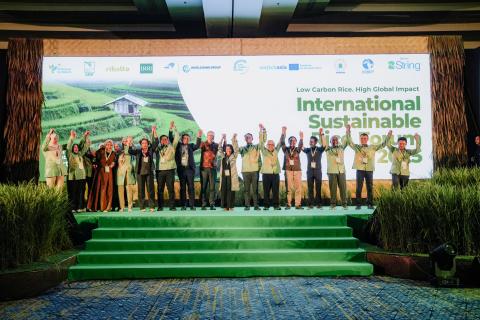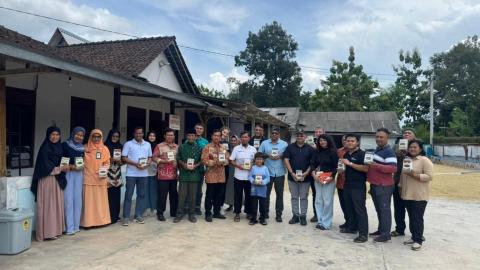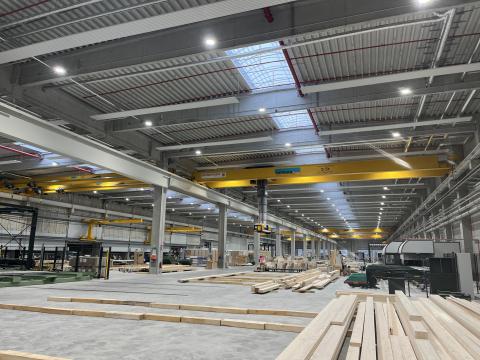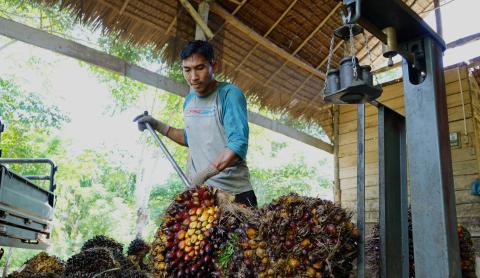Lego adopts forest-friendly packaging
The world's largest construction toy maker, LEGO, yesterday announced a new policy for responsible sourcing of packaging material. Through a mixture of reduced packaging volumes, increased use of recycled material, and specification for FSC-certified material, LEGO aims to avoid any linkage between its packaging and deforestation.
Yesterday, LEGO announced a new policy for the packaging of all its products, involving a firm requirement for FSC certification for pulp based packaging unless it is made from recycled materials.
In its press release, the giant toymaker group pledges to work towards minimising the volume of its packaging and maximising the use of recycled material for packaging; for non-recycled fibre material, FSC certified materials are required under the new policy.
According to LEGO, more than 75 % of its packaging were made from recycled materials in 2010.
However, due to the enormous production, a share close to 25% of LEGO's total packaging implies signficant amounts of fibre product. LEGO toys are immensely popular worldwide, and the sales volume is staggering: the group estimates that more than seven LEGO sets are handed over the counter to buyers every second worldwide, and that each person on the planet today possesses 70 LEGO bricks on average.
All packages and manuals to follow policy worldwide
Communications Manager at LEGO, Roar Trangbæk, confirms that the policy covers all of LEGO's products worldwide,including pulp-based materials used for the packages and their contents. This will also entail all of the construction manuals enclosed in the boxes.
However, consumers should not expect to see the FSC logo on all LEGO packages immediately, as LEGO needs time to work with its suppliers and realise its new policy. "We have just launched the policy, and we are now working towards its implementation. We expect to be firmly on our way to fulfil our targets within a year's time", says Mr. Trangbæk.
Greenpeace: "Well done LEGO"
In a statement released yesterday, Dan Belusa of Greenpeace said: “Well done LEGO. One of the world’s biggest toy companies has proved that it is indeed possible to secure rainforest friendly packaging".
LEGO has also stated that the intent is only to source material from suppliers that are not involved in deforestation. The LEGO group yet needs to identify ways of handling this requirement in practice and Mr. Trangbæk concedes that this point may be difficult to verify. In its statement, Greenpeace underlines that this part of the LEGO policy will "exclude the notorious Asia Pulp and Paper from supplying the company. APP has been exposed many times for wrecking Indonesia’s rainforests to make products such as packaging".
LEGO is the first major toy company to demonstrate its commitment to offer sustainable toys for the next generation, as far as their forest origin is concerned. The commitment by LEGO speaks well to its roots: when the company was first founded back in 1932, its toys were made from wood.
The move follows a Greenpeace campaign launched last month to persuade the global toy industry to take a 'due diligence' approach to its packaging. The campaign mainly targeted Barbie producer Mattel and involved a Ken and Barbie spoof video, where Ken broke up with Barbie with the words, "Barbie, its over. I don't date girls that are into deforestation".
According to Greenpeace, over 250,000 people have contacted Mattel, asking them to switch to rainforest friendly packaging. LEGO’s move is sure to add to the pressure put on the world’s largest toymakers to take a responsible approach to their forest-based product sourcing.
Be a leader in sustainable sourcing
New timber legislation and concerns over being the target of Greenpeace’s next campaign are some of the motivators for companies looking to green up their supply chain. This is by no means an easy task and it should not be underestimated, but companies should not bury their heads in the sand. Help is at hand.
Through our SmartSource program, Rainforest Alliance / NEPCon work with companies to not only meet new legislative requirements for legality but move beyond this to fulfil long-term commitments to responsible sourcing.
By committing to the SmartSource framework and program, participants have access to premier tools, service and experts to conduct a comprehensive supply chain risk assessment and assist with the development and implementation of an environmentally and socially responsible procurement plan for the full spectrum of forest products - such as paper and packaging, lumber and finished wood products.



